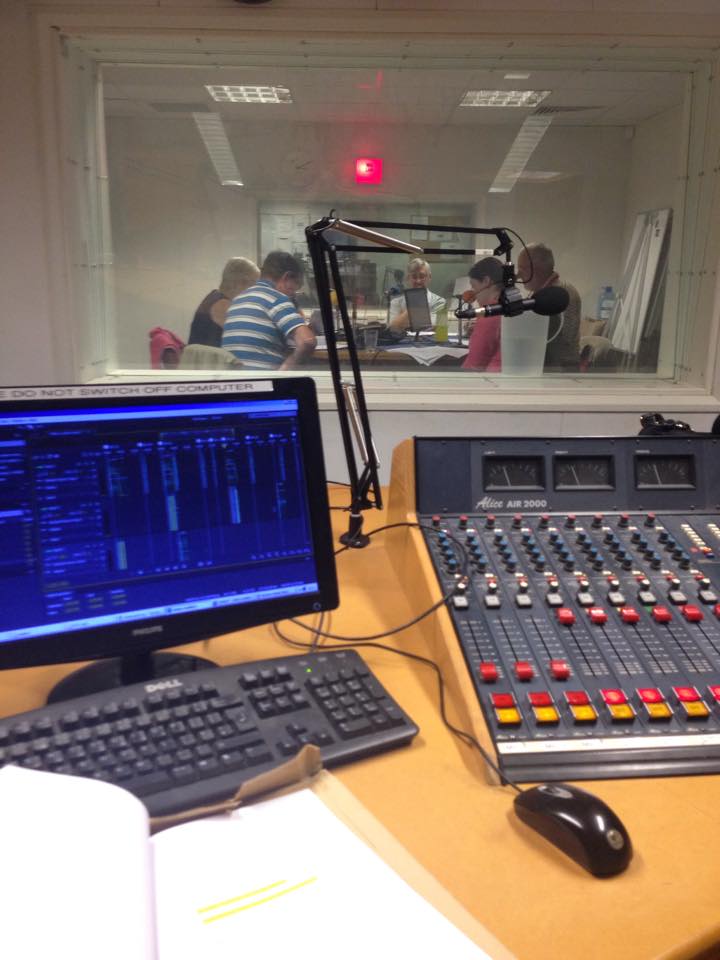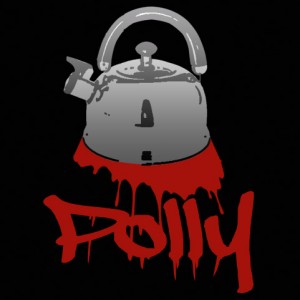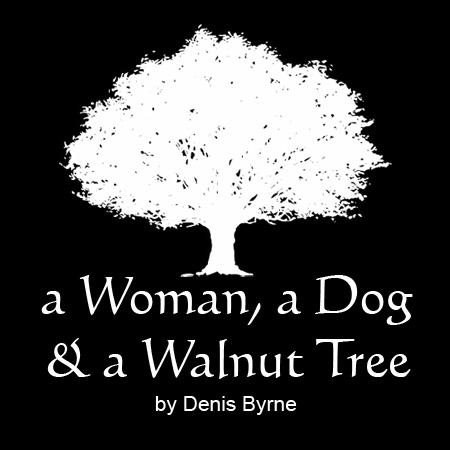
We recorded a new podcast last week for arcadeandretro.com where we took a look back at the awkward history of sex in classic videogames.

We recorded a new podcast last week for arcadeandretro.com where we took a look back at the awkward history of sex in classic videogames.
I had a few friends over for a retro video game party last weekend and we decided to livestream some games.
Unfortunately we’re still working out a way to stream older systems, but fortunately the Wii U is backwards compatible and has a HDMI video output which is easy for us to stream. We played a game called ‘Escape From Bug Island’ from 2006 which we had a lot of fun with. There’s some amazing dialogue in this game.
We got a nice mention in the Irish Independent on Saturday for ‘A Woman, A Dog and a Walnut Tree’:
Finally, production deadlines prevented me covering this, but the ever-inventive community radio station Near FM deserve a mention for really pushing the boat out with a unique broadcasting event. A Woman, a Dog & a Walnut Tree (Wed, 9.30pm) was a radio play, but with a significant difference: it was performed live, over one-and-a-half hours. Written by Denis Byrne, the work tells the stories of three women in a refuge victims of domestic violence, and was followed by a panel discussion on the subject.
But it’s the live element that really tickled my fancy. What ambition, courage and imagination – would larger organisations, with better finances, take such risks? It’s all available to listen back on www.near.ie.
2 recent arcade and retro podcasts I’ve produced.
One is about Batman and the other is about blood… what more could you want? You can find all of the podcasts at arcadeandretro.com
Last night’s live broadcast of ‘A Woman, a Dog and a Walnut Tree’ by Denis Byrne went well. (Although at one point as I was turning a script page my finger tipped off the mouse and triggered a door sound effect too early, d’oh!)
We had representatives from Women’s Aid Ireland and the Rape Crisis Centre on a panel discussion after the play and I was worried they’d be our strongest critics but they really liked the play, so I guess we did a good job.
You can listen to the entire thing as it was broadcast live here:

Currently hard at work on ‘A Woman, a Dog & a Walnut Tree’ by Denis Byrne a radio play that we’ll be performing LIVE on air on the 15th of October. First time I’ve attempted a live broadcast like this and it’s a fairly long play with a lot of sound effects cues. You can hear the promo for the play below.
Near Drama Company present, Denis Byrne’s radio play,
A Woman, A Dog & A Walnut Tree LIVE on air !!!!The play is set in the cooking area of a Refuge Centre for married women who have suffered at the hands of violent spouses. It is the present and past stories of three women from different backgrounds.
Marge, the oldest, has little or no education, and has sought asylum in the Centre together with her three children, who are referred to during the play, as she ferries food to them offstage. She is a feisty individual with a typical Dublin accent. Thelma is a doctor’s wife, well educated, and eventually having been driven to violence herself after years of enduring her husband’s jealous rages which inevitably led to physical violence on many occasions. But was what she carried out spontaneous, or had she deliberately provoked her spouse on the night she did the deed?
Amanda has sought refuge in the Centre after accidently discovering her controlling and violent husband had been sexually abusing her eight-year-old daughter since she was six while she was out of the house. He has never penetrated the child, but made her do things which no child should ever have to endure. Without proof, Amanda cannot have him charged. He discovers where she is and threatens in a letter that he is taking the matter to court to regain custody of his daughter. Amanda, against all advice, decides to go and plead with him not to go through with it. But he merely laughs and sneers at her, telling her that because of her past mental history, he’ll have no problem winning custody. Then he beats her up and throws her out.
What follows when Amanda returns to the Centre leads to a tragic conclusion after she’s come to her final decision to protect her daughter.
Near Drama Company will perform Byrne’s play LIVE on air
October 15th 2014 from 7.30-9.00pm, and will be followed up by a
panel discussion on the topic of domestic abuse, with a number of experts.Sound supervision: Gavin Byrne
Broadcasting assistant: Deborah Gaffney
Announcer: Carol Dempsey
Narrator: Niamh Murphy
Producer…. Declan Cahill
Facilitator …. Debbie McMahonMarge ….. Francis Keogh
Joe……….. Joe Murphy
Thelma….. Ann Loughney
Michael….. Peter Prior
Amanda…. Mary McNamara
Paul……….. Michael Sharp

Today is National Podcast Day so last week I thought I’d dust off an old script that I had lying about and had never done anything with and finally record it and release it exclusively online.
So here is POLLY
A young woman murders her boyfriend and in an attempt to absolve herself of guilt assumes the personality of God and her dead boyfriend. But her sister is due to arrive for tea.
Written and produced by Gavin Byrne
Polly is played by Jessie Doyle
Sara is played by Barbara Ceannt

I’m currently working with the Near Drama Group on producing a radio drama that will be performed live on air. This will be the first time we’ve attempted something like this and a lot of work is going into the rehearsals at the moment.
The play is called ‘A Woman, a Dog & a Walnut Tree’ and is by Denis Byrne, we’ve previously produced a number of his plays. The play deals with the topic of domestic violence against women. We’ll be also running a discussion panel immediately after the live broadcast to discuss the issues raised in the play.
The broadcast date is expected to be some time around mid-October. I’ll be sure to post more updates as we work on it
Meanwhile you can listen to ‘Poodles’ by Denis Byrne. This play explores the haphazard effort of young drug addict aided by his hapless girlfriend from well-to-do families to rob a small cafe to get money to feed their habit. The play breaks through the veneer of respectability and what goes on in these families. However, the cafe owner, whose own nephew died from drugs, saves the day by forcing the young man to fight his demons, re-discover his artistic abilities and start on the road to recovery.
was interviewed as part of this documentary about the history of Near FM.
Near FM presents a four part radio series celebrating 30 years of community media on the Northside of Dublin
Telling Our Own Story is a four part series looking at the history of the Near Media Co-operative through the voices of the volunteers and staff. 2013 marked the thirtieth anniversary of the creation of the Near Media Co-operative. This series charts the history of the organisation through the volunteers and staff that started it all off and continue to make it the vibrant media organisation it is today. Through the series we explore the historical background of Near’s formation, the dream becoming a reality, the challenges faced and overcome, the advent of new media as well as looking to the future.
The series features contributions from Andrew Montague, Stephen Blayds (Sphere 17), Browen Maher, Cristina Santamaria (CIC), Ciaran Kissane (BAI), Ciaran Murray, Colm Kenny (DCU), Dave O’Connor, David / Darren (youth programme), Declan Cahill, Declan McLaughlin (BAI), Dorothee Meyer Holtkamp, Doug Rogers, Edd Kealy, Elaine King, Gavin Byrne, Heidi Bedell (Northside Partnership), Jack Byrne, Marion Vickers (Northside Partnership), Natasha Valente, Owen Drinan, Pat Farrell, Paul Loughran, Ray Kennedy, Sally Galiana, Shannette Budhai, Tomas Mac Ruairi, Tony Crampton (CRC), Vincent Teeling and Zandra Ball.
“Since community radio emerged as a separate strand it has added to the plurality of voices that are on air it has also provided significant opportunity for people to develop their skills and it has provided opportunities for communities to access the airwaves…Nearfm was one of the first ones to embrace the idea that community radio was a community development tool as much if not more than a radio project”
– Ciaran Kissane – Broadcasting Authority of IrelandProduced by Ignacio Irigoien, presented by Noel McGuinness.
This series is funded by the Broadcasting Authority of Ireland Sound & Vision Scheme.
Thanks to Poul Madsen for this little video of my boardgamesireland.com meet up from this week. It was really busy one too with around 40 people in attendance and 2 simultaneous Game Of Thrones campaigns going on.